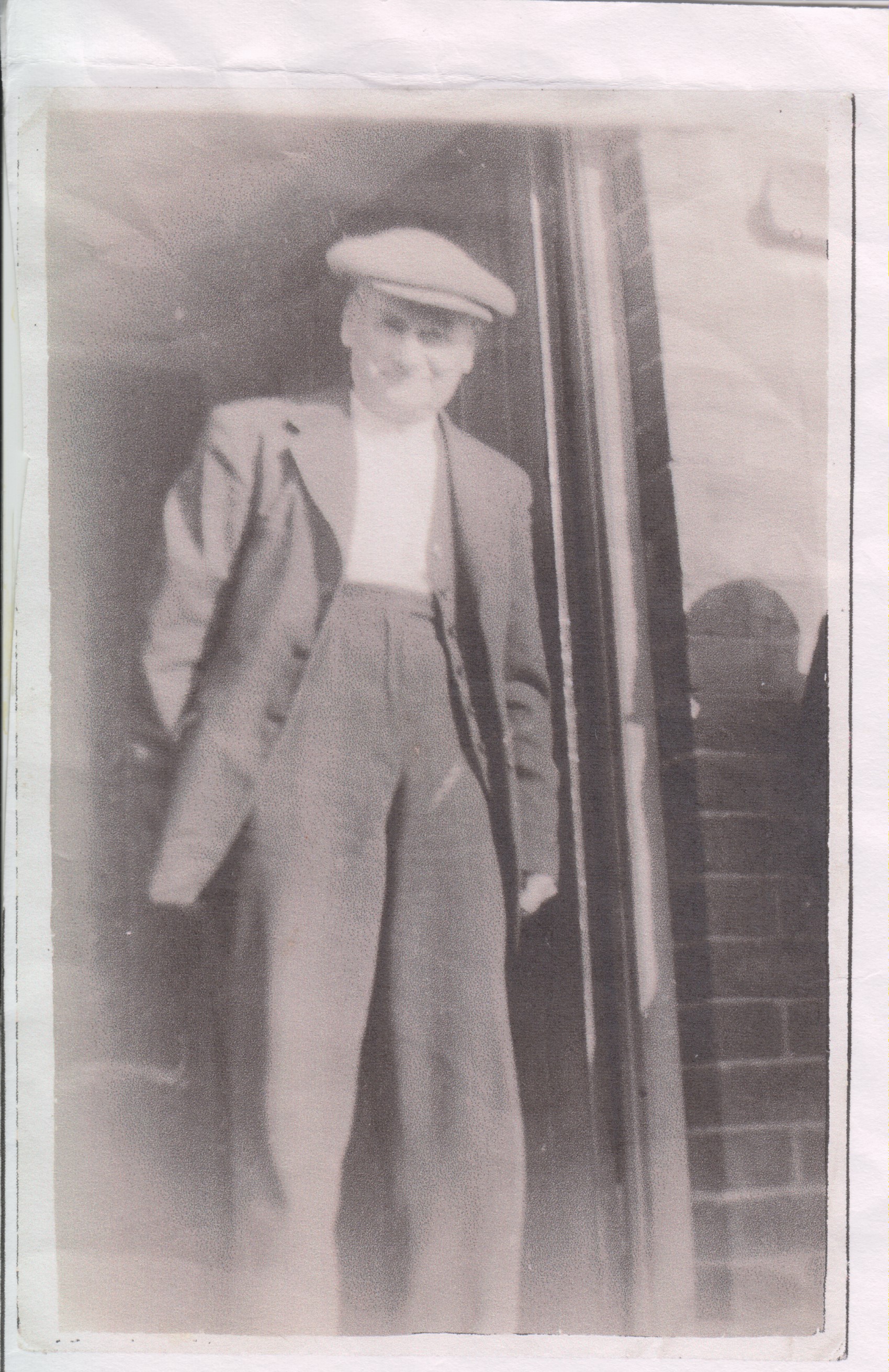
Maureen Hunt told us about her grandfather, William Smith.
William was born around 1883 in Wirksworth, Derbyshire and worked as a bath attendant at Matlock before the war. He volunteered early in the war and possibly joined the High Peak Rifles (later 6th battalion, Sherwood Foresters). He recounted to his family the horrors of war, having fought at the Battle of Ypres. Later in life he complained of chest pains as a result of having been gassed in the trenches.
He was taken prisoner by the Germans on 21 March 1918, during the German Spring Offensive. He did not return to England until 1919. Gardening became a favourite pastime, helping him to cope with the mental and physical scars of war.
William died in 1962 at almost 80 years of age.
Explore more memories from the ribbon
-
Florence Hilda Lily Biggs
Florence was born on the 19th of October 1899 in Boxted, Essex, United Kingdom to Ellen Biggs and Henry Ernest Biggs. She enrolled as a VAD clerk for the British Red Cross and was stationed at the Military Hospital Catterick Camp. ‘Biggsie’, as she was known by her friends and fellow VAD workers, spent approximately a year at Catterick Camp. Stationed from 15th January 1918 until the 11th of February 1919 when she returned to Essex as a VAD G/S Clerk in the British Red Cross, Sobraon Military Hospital, Colchester. Florence Hilda Lily Biggs died in Essex, United Kingdom in 1984. This information, provided by Alathea Anderssohn has been drawn from the Imperial War Museum’s ‘Lives of the First World War’ archive.
-
Ernest Farrar
Judith Farrar told us the story of Ernest Holdsworth Farrar, the Great Uncle of her husband, Don. Ernest Farrar was born in 1882 in Leeds, after a spell at Teacher Training College in Isleworth, Middlesex he went on to study at Trinity College, Cambridge. He attained both a BA and BSc. After his graduation, Ernest spent some time in Dresden in Germany, and while the reasons for this sojourn are no longer known, it is highly likely that he continued as an academic at the University of Dresden. On his return to England Ernest was appointed to the Headship at Todmorden Secondary School. This important work continued after the outbreak of the First World War, but with the introduction of conscription in January 1916, Ernest was compelled to face several Tribunals when it was insisted that he enlist. The School Governors tried to intervene and to keep him as Headmaster, but he was sentenced to 6 months in Wormwood Scrubs prison. After an unsuccessful appeal, Ernest was sentenced by the Central London Tribunal to 6 months in Dartmoor Prison in 1917. His reasons for refusing to fight are given in the extract from the Yorkshire Post.
-
Flora Sandes
Researched by John Mills. Flora Sandes was the only woman to officially fight on the front line during WW1, having joined the Serbian Army. Flora was born on the 26th January 1876 in Nether Poppleton, near York, the youngest of eight children. From an early age she exhibited an adventurous nature, a real tomboy, somewhat surprising for the daughter of a vicar! At the aged of 9 the family moved to rural Suffolk. Even her middle class upbringing didn’t dull her desire for adventure. After school she trained as a stenographer in London and scrapped together all her money, and together with the proceeds of a legacy from an uncle she went off to see the world travelling to places like Egypt, Canada and America. Flora was 38 years old when WW1 broke out and was living in London at the time. She enlisted as an Ambulance Service Volunteer and just 8 days later she was on her way to Serbia with the first volunteer unit to leave Britain. She worked in Military Hospitals and by October 1915 was fluent in the Serbian language. She eventually enlisted in the Serbian Army, one of the few countries in the world that accepted female soldiers. She soon made a name for herself, rising through the ranks to Sergeant within a year. It wasn’t just soldiering that Flora matched her male counterparts. She could hold her own racing cars, shooting, smoking and drinking. She survived the front line fighting, received a terrible shrapnel…
